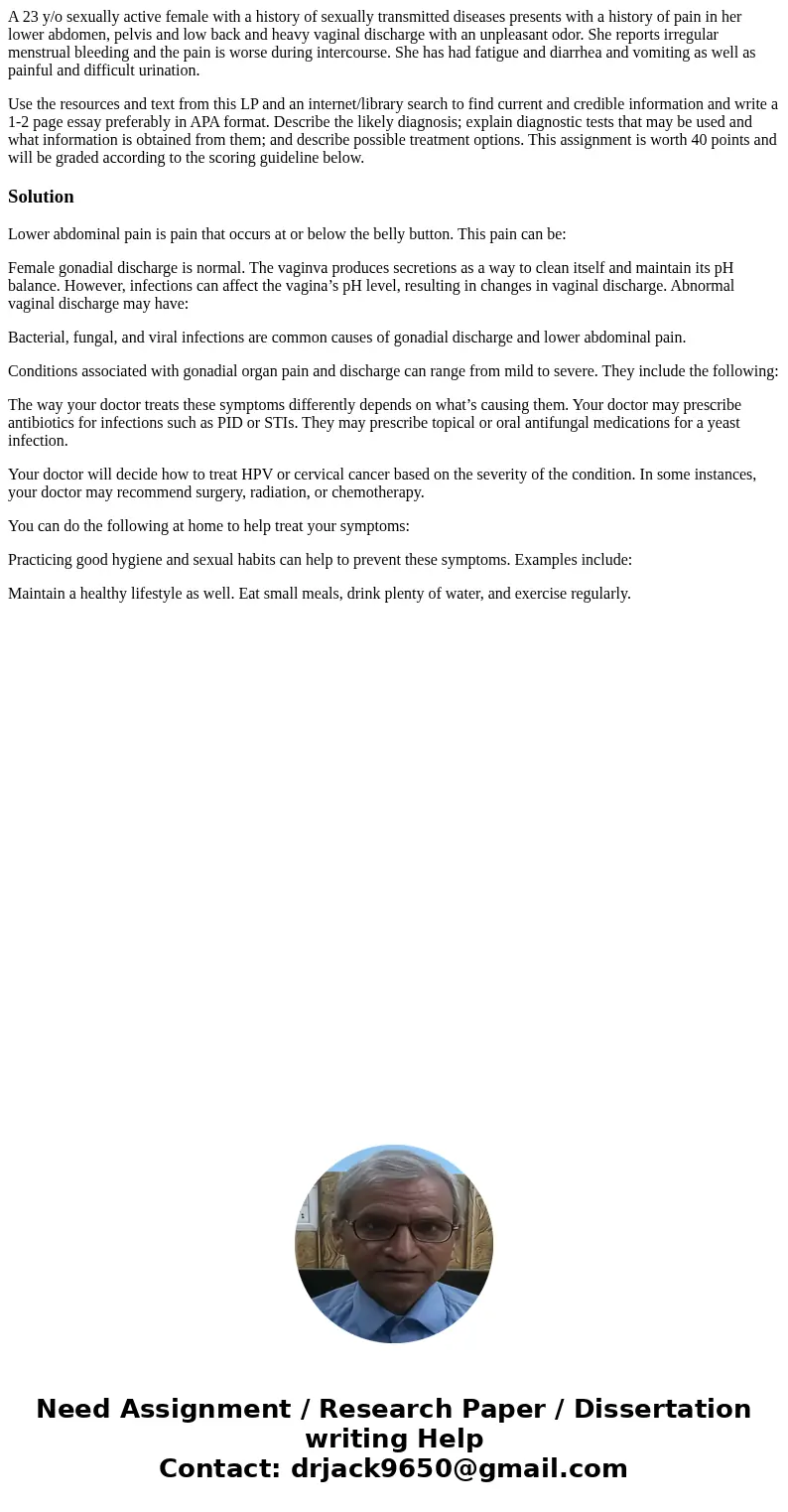A 23 yo sexually active female with a history of sexually tr
A 23 y/o sexually active female with a history of sexually transmitted diseases presents with a history of pain in her lower abdomen, pelvis and low back and heavy vaginal discharge with an unpleasant odor. She reports irregular menstrual bleeding and the pain is worse during intercourse. She has had fatigue and diarrhea and vomiting as well as painful and difficult urination.
Use the resources and text from this LP and an internet/library search to find current and credible information and write a 1-2 page essay preferably in APA format. Describe the likely diagnosis; explain diagnostic tests that may be used and what information is obtained from them; and describe possible treatment options. This assignment is worth 40 points and will be graded according to the scoring guideline below.
Solution
Lower abdominal pain is pain that occurs at or below the belly button. This pain can be:
Female gonadial discharge is normal. The vaginva produces secretions as a way to clean itself and maintain its pH balance. However, infections can affect the vagina’s pH level, resulting in changes in vaginal discharge. Abnormal vaginal discharge may have:
Bacterial, fungal, and viral infections are common causes of gonadial discharge and lower abdominal pain.
Conditions associated with gonadial organ pain and discharge can range from mild to severe. They include the following:
The way your doctor treats these symptoms differently depends on what’s causing them. Your doctor may prescribe antibiotics for infections such as PID or STIs. They may prescribe topical or oral antifungal medications for a yeast infection.
Your doctor will decide how to treat HPV or cervical cancer based on the severity of the condition. In some instances, your doctor may recommend surgery, radiation, or chemotherapy.
You can do the following at home to help treat your symptoms:
Practicing good hygiene and sexual habits can help to prevent these symptoms. Examples include:
Maintain a healthy lifestyle as well. Eat small meals, drink plenty of water, and exercise regularly.

 Homework Sourse
Homework Sourse